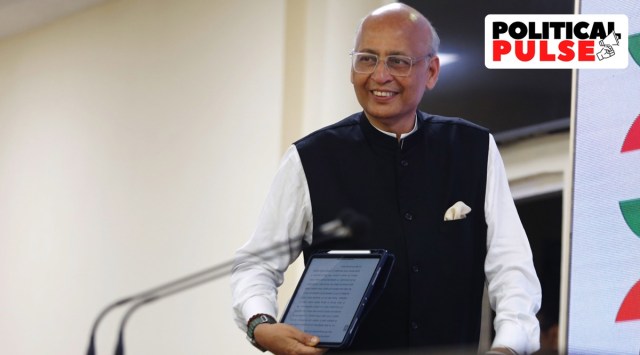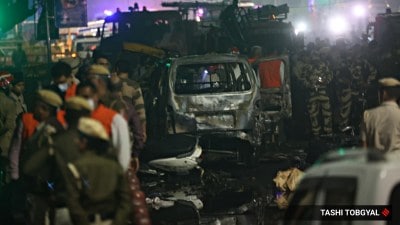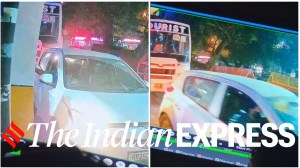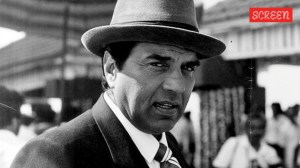Rahul Gandhi’s plea dismissed, Congress says ‘contrary to all principles of law’
Cong leader to go to high court for stay on conviction, says one-line remark has been distorted out of recognition for narrow interests
 Congress leader Abhishek Manu Singhvi during a press conference in New Delhi on Thursday. (Express Photo: Anil Sharma)
Congress leader Abhishek Manu Singhvi during a press conference in New Delhi on Thursday. (Express Photo: Anil Sharma) The order of the Surat sessions court dismissing Rahul Gandhi’s plea for stay on his conviction in a defamation case is “devoid of valid, sustainable legal reasoning” and “erroneous”, the Congress said Thursday, asserting that the judgment will be challenged in the Gujarat High Court.
The Congress picked several holes in the judgment, arguing that some of the cases cited in it are “inapposite” to Rahul’s case. The Congress also attacked the BJP over its alleged “intimidation tactics”, and argued Rahul cannot be silenced by these.
Addressing a press conference at the AICC headquarters, Congress leader and noted lawyer Abhishek Manu Singhvi said, “The conviction has been upheld contrary to all basic and elementary principles of law.”
LIVE: Congress party briefing by @DrAMSinghvi at AICC HQ. https://t.co/QthV97j5NB
— Congress (@INCIndia) April 20, 2023
“The judgment will soon be challenged, in accordance with the law, in the High Court. We are confident that superior courts with constitutional power of judicial review, namely the High Court and the Supreme Court, have the power and will set right the legal errors found in these two judgments,” he said, adding that the judgment was devoid of valid, sustainable legal reasoning.
“From the beginning, the one sentence, one-line remark of Rahul Gandhi in a two-and-a-half-odd page speech [delivered in Kolar], has been distorted out of recognition to serve the narrow ends of the motivated complainants, which hasn’t been recognised at all in the sessions court judgment. What little has been said is a complete distortion and is legally erroneous,” he said.
He pointed out some of the cases cited in the order and argued that they show “how unsustainable the judgment that came out today, is”.
“The first 7-8 pages are only quotations from previous judgments — mostly Supreme Court rulings — underlined by the learned judge. The amazing part is, these are inapposite judgments, selectively underlined in respect of either offense, and which have nothing to do with Gandhi’s case, nor are they similar to it… in fact, they are actually supporting his [Gandhi’s] stand,” Singhvi said.
“They are underlined and used to dismiss the appeal, whereas a bare reading of those same judicial precedents show that they are entirely in favour of the point I’m making,” he said.
Singhvi then pointed out a case the judge has cited to argue why suspension of conviction should happen in the rarest case. “He has underlined that ‘if so the legal position can be laid down that when conviction is on a corruption charge against a public servant, the appellate court or the revisional court should not suspend the order of conviction’,” Singhvi said, adding, “But the case he refers to is of criminal defamation, not a corruption charge as in Gandhi’s case.”
Pointing out that the judge had also cited the case of Navjot Singh Sidhu, Singhvi said the order says that the “person seeking stay of conviction should specifically draw the appellate court’s attention to consequences that may arise if the conviction is not stayed”, adding that in Sidhu’s case, he was facing a murder charge, and was still granted a suspension of conviction.
“And what is the consequence he [Sidhu] had cited? He said ‘My MP-ship will be suspended. I’ll be disqualified.’ What is Rahul Gandhi citing? Is it because his name is Rahul Gandhi that there’s this difference in approach?” Singhvi asked.
“What bigger consequence can an MP or MLA draw the attention of the appellate court to, than the fact that he will be disqualified? Yet, the learned judge suggested he [Gandhi] needed to cite bigger consequences before he [the judge] could consider staying the conviction,” Singhvi said.
Singhvi said the order has also cited the case of one Shyam Narayan Pandey, adding the order in that case talks about offenses involving moral turpitude and outrageous crimes that can shock one’s conscience and seriously impact public perception. “Does this (case) fall under that category?” Singhvi asked.
He went on to argue that three paragraphs in the second part of the judgement “repeatedly mentions that it is an outrageous defamation, because Prime Minister Modi has been defamed, and then adds ‘along with that, 13 crore members of the Modi community [have been defamed]’.”
“The second part will be contested in our appeal. It’s a false, distorted and wrong interpretation. But the first part is clearly actuated by excessive reliance on the alleged defamation of a sitting Prime Minister… It is repeated three times by the learned judge, forgetting that the PM is not the complainant… In defamation law, a condition precedent is that the aggrieved party must be the complainant… Sorry sir. The Prime Minister never complained. He never filed a petition,” he said.
Singhvi then said, “[The] second issue, which we’ll debate, is whether any member of the community is equally aggrieved…,” adding, “The last para shows a complete lack of application of mind. That makes [it] an erroneous and fallacious judgement.”
“It is the repetition of the same error, where the learned judge says Rahul Gandhi has failed in demonstrating that by not staying the conviction and denying an opportunity to contest the election on account of disqualification, an irreversible and irrevocable damage is likely to be caused,” he said, and added, “But what else can Rahul Gandhi say?”
“He [Gandhi] could only show that he had to forego one session of Parliament… But if you don’t order a stay, he will have to forego the next session. His right as an MP is a statutory one, if not constitutional. His right to speak, vote, engage in a discourse is a valuable right. This can’t be affected. That is what he has been showing. That is what he has been arguing. So what else does the judge want us to do?” Singhvi said.





- 01
- 02
- 03
- 04
- 05


























